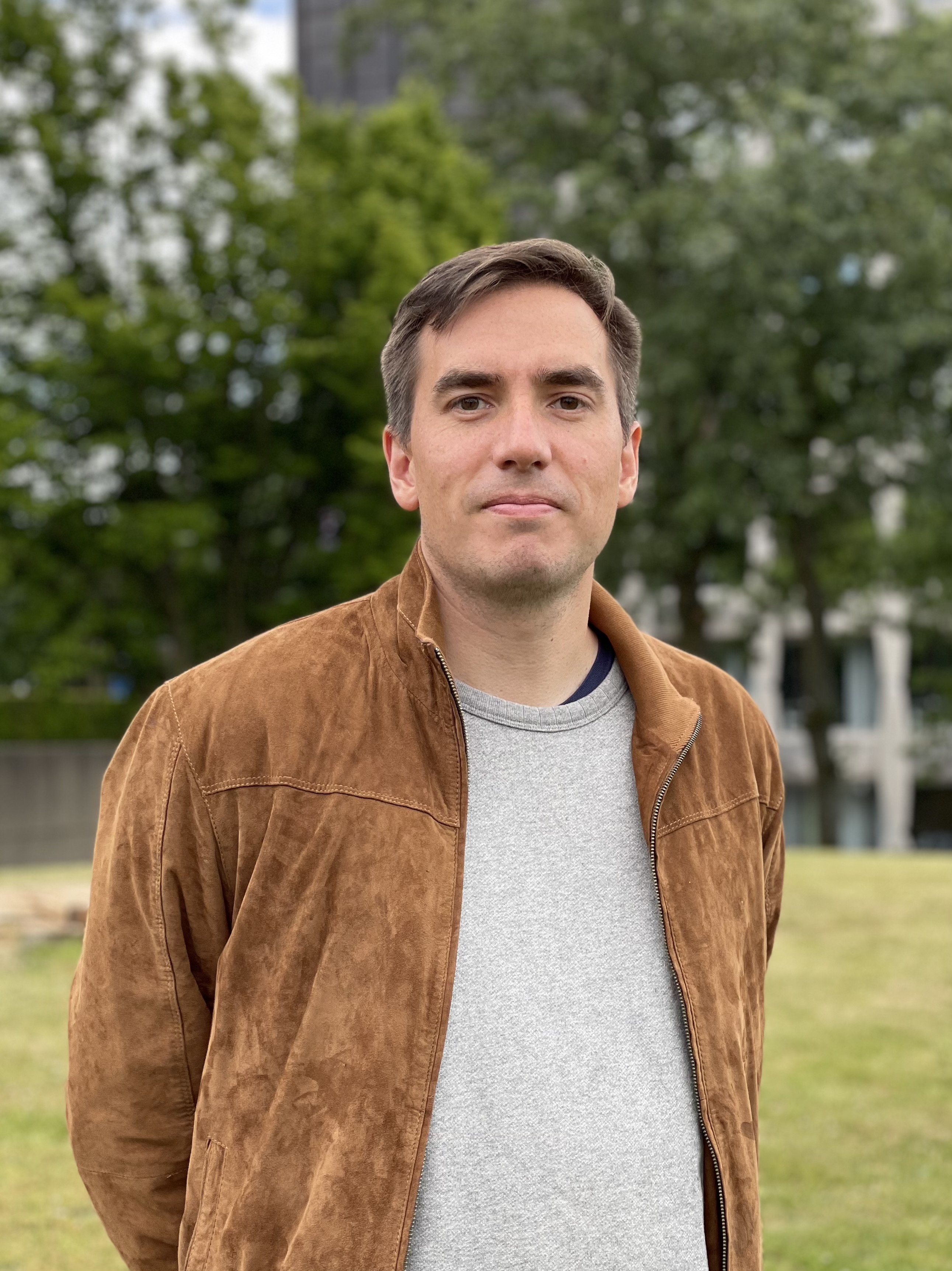Knowledge is for sharing
Like a number of other universities in the Netherlands and elsewhere in the world, UM has its own Open Science Community (OSCM), a bottom-up organisation supported by ten volunteers, including seven ambassadors within the faculties. One of them is PhD candidate Matthijs Sloep, a data engineer at MAASTRO Clinic and the UM Department of Clinical Data Science. ‘Becoming a member of our community is valuable for any scientist, but especially for starting researchers,’ he says. ‘You rapidly build up a network and meet people you would normally only come across much later in your career. Thanks to the collaboration with national and international Open Science (OS) communities, you enter a world of people who are all convinced of the importance of OS. This is really inspiring. I’ve already gained more than I dared to hope for.’
UM couldn’t have found a better ambassador for OS than Matthijs Sloep. He’s deeply convinced of the importance of OS: ‘My parents, both academics, brought me up to believe that knowledge is for sharing, and that’s exactly what OS means to me. Sharing knowledge is better for society as a whole. Science is progressing faster, becoming more efficient, more transparent and more accessible to a wider audience. Who wouldn’t want a cancer drug to be developed faster? OS helps to bring that within reach.’ OS is an umbrella term incorporating a variety of aspects: Open Access, which means that publications are available online to everyone; FAIR data (findable, accessible, interoperable and reusable), which means that researchers make the data from their research more accessible to other scientists; and Open Source, which means that the source code of software is made available so other people can track down errors and check whether codes are really safe.

Matthijs Sloep.
Sharing
‘Working with OS requires some technical knowledge and that sometimes scares people off. It requires extra effort and sometimes some technical learning. Researchers wonder what it exactly entails, whether they’ve got the computer skills, and whether the benefits outweigh the extra effort. And in the case of FAIR Data, it’s quite a step not just to keep your data to yourself, but to open it up to a wider group of researchers. You might think, “Wait a minute, I’ve put a lot of time and effort into collecting this data, I want to do more research with it, why should I open it up to everyone?” But that’s not the way it works. If I share my data with another researcher, they’ll probably find a new angle for further research. There’s also a middle ground: you can announce what data you’ve found, but not make it immediately available. This can then lead to collaboration, and it lets other researchers know that research has already been done on the issue, so they don’t need to work on it. Sharing data saves a lot of energy, time and money. A study initiated by the European Commission once found that we would save 10 billion euros if all the data in Europe were made FAIR.’
Joining the community
‘It’s very easy to become a member of the OSCM, even if you don’t want to invest time and effort in the community yourself. We want to help people discover OS. That’s why we’re very accessible and our e-mail addresses are on the website. So you can always contact us with questions or come to our events. We regularly run FAIR Coffees, lectures and workshops in the field of reproducibility, preregistration, and so on. Many of these events are intended for people who don’t have much experience with OS yet. They might recognise that it’s a good idea to preregister a study, but they don’t know how to go about it. At our events, you learn that it’s not as complicated as you might think, and perhaps find out that this is the way it should be: you collect data, publish it, and by sharing your knowledge, you take science a step further.’
Sloep’s work as a data engineer at MAASTRO Clinic illustrates the value of FAIR Data: ‘The MUMC+/MAASTRO is one of three centres in the Netherlands with a proton irradiation facility. Proton irradiation is a new method that potentially causes less damage during radiation treatment for cancer. We’ve created a data architecture with predictive elements. Based on Dutch data, we can calculate which patients will benefit most from proton therapy treatment. This makes the selection procedure as fair as possible, because it’s not about money or doctors with the best connections. This data-based model predicts who has the most to gain from the treatment and makes the choice on that basis. This architecture and models are freely available for maximum transparency. It’s a very good example of why open and FAIR benefit patients.’